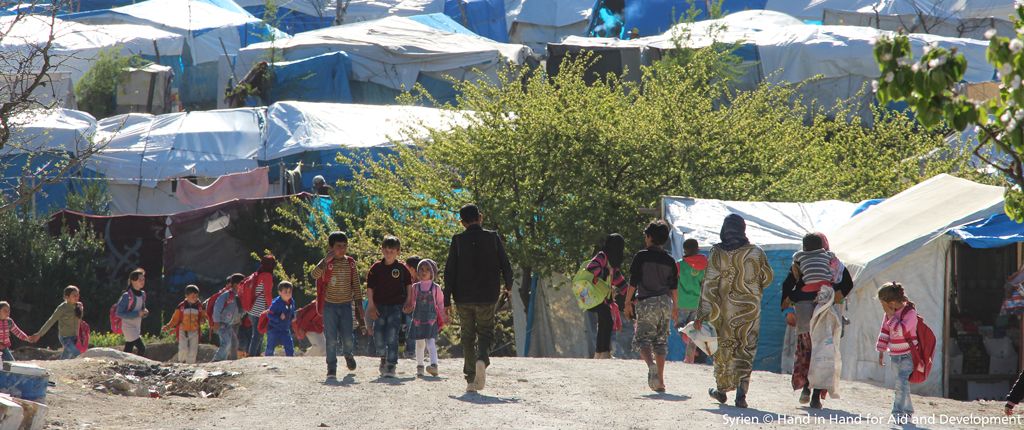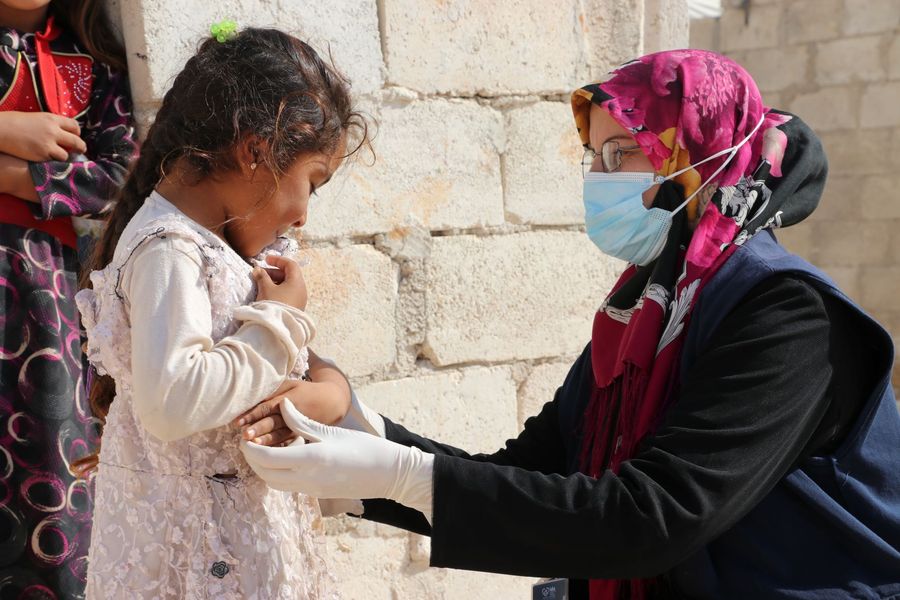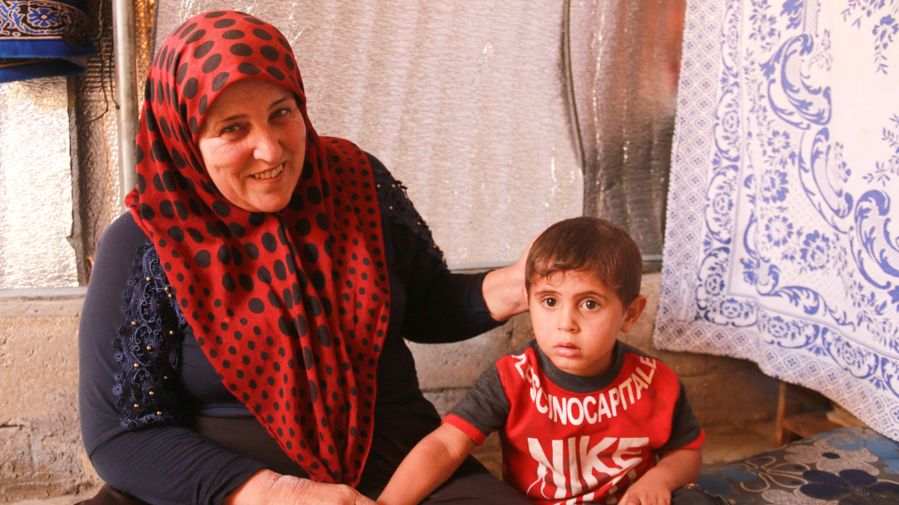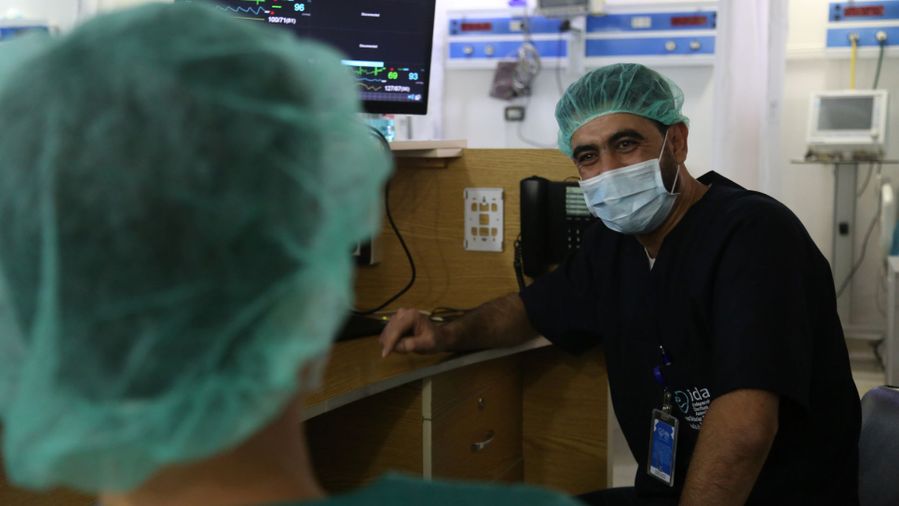
#MomentsOfHome: "Losing our house felt like dying".

"Our house was furnished with everything, it was our kingdom. We had worked on it for 25 years, building it and improving it over and over again. All my memories and the children's memories were in that house. Losing it felt like dying. I had many dreams, my sons were going to get married there and live close to us." Iman Al Mahmoud, a health worker in our partner organization, the Independent Doctors Association (IDA), had to leave her home village of Marat Naasan in the Idlib region in 2019 and now lives in the Halab Labeeh camp for internally displaced people.
"I learned a few days after we fled that our house was destroyed during the bombing. They sent me a video of it. When I saw it, it felt so bad. It's hard to lose your house and home with no hope of returning," says the 42-year-old.
The situation was hard on the mother of three: "I got high blood pressure and my heart almost stopped. Only Allah gave me the strength to carry on," she says, holding back tears.
Life on the run burdens health of mind and body

The suffering that people have had to endure in the embattled areas still weighs heavily on many, and this often manifests itself in physical and mental health: "I couldn't say goodbye to my mother before she died. Nor when my brother and sister died, and everyone else," says Najah Um Abdullah, who was forced to leave her hometown of Tal Rifaat, in northern Syria, seven years ago and has since lived with her husband and three sons in temporary housing in the Bab Al-Salama camp near the Turkish-Syrian border.
The family cannot leave the camp, they stay in their tent most of the time. The situation has a stressful effect on the parents' psyche and health: "My husband has had two heart attacks in the past four years, and I have three broken bones in my arm," reports the 50-year-old. She says she is strengthened by her faith and the good fortune that she can continue to live with her husband and sons.
The work helps to distract oneself and to look ahead

In addition to the trauma experienced, there is often fear for one's own future and that of one's children. What do people do to look foward in such hopeless situations? For 34-year-old Omar Al-Ali, who comes from the town of Alrastan in the rural area around Homs and works as a medical-technical assistant in the Wassim Ma'az hospital of our Syrian partner organization IDA in northern Aleppo, it is the work that gives him a sense of belonging. He says, "Maybe we have hope thanks to the colleagues and friends we have here at work. Colleagues are a little like the family ties we had before we fled."
For Iman Al-Mahmoud, too, her work as a health worker is important - and not just to make a living for her family. "Seeing the children we help getting better gives me some sort of happiness.“
Malek Maznook, who has lived in Bab Al-Salama camp with his two sons for three years, has another strategy for feeling a little more at home while on the run: "In my house, we had a lot of plants. We planted them on our own land," the 40-year-old recalls. "Even though we live in a tent now, we planted flowers to remind us of the smell of our old farm."
(November 2021)








